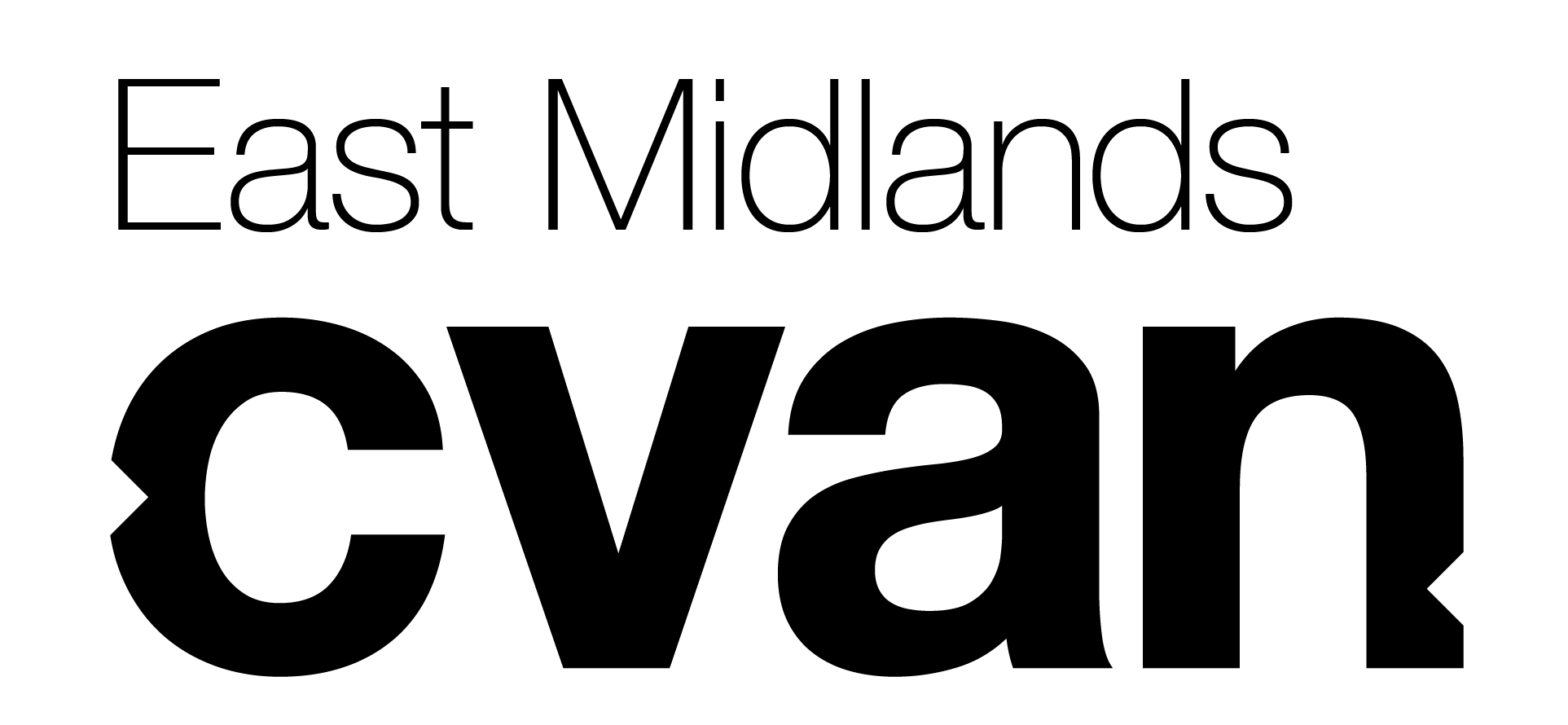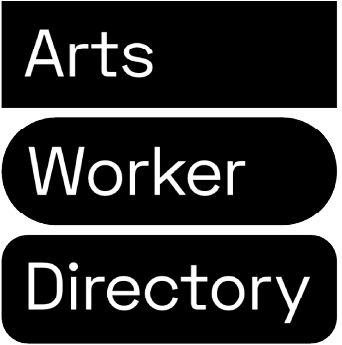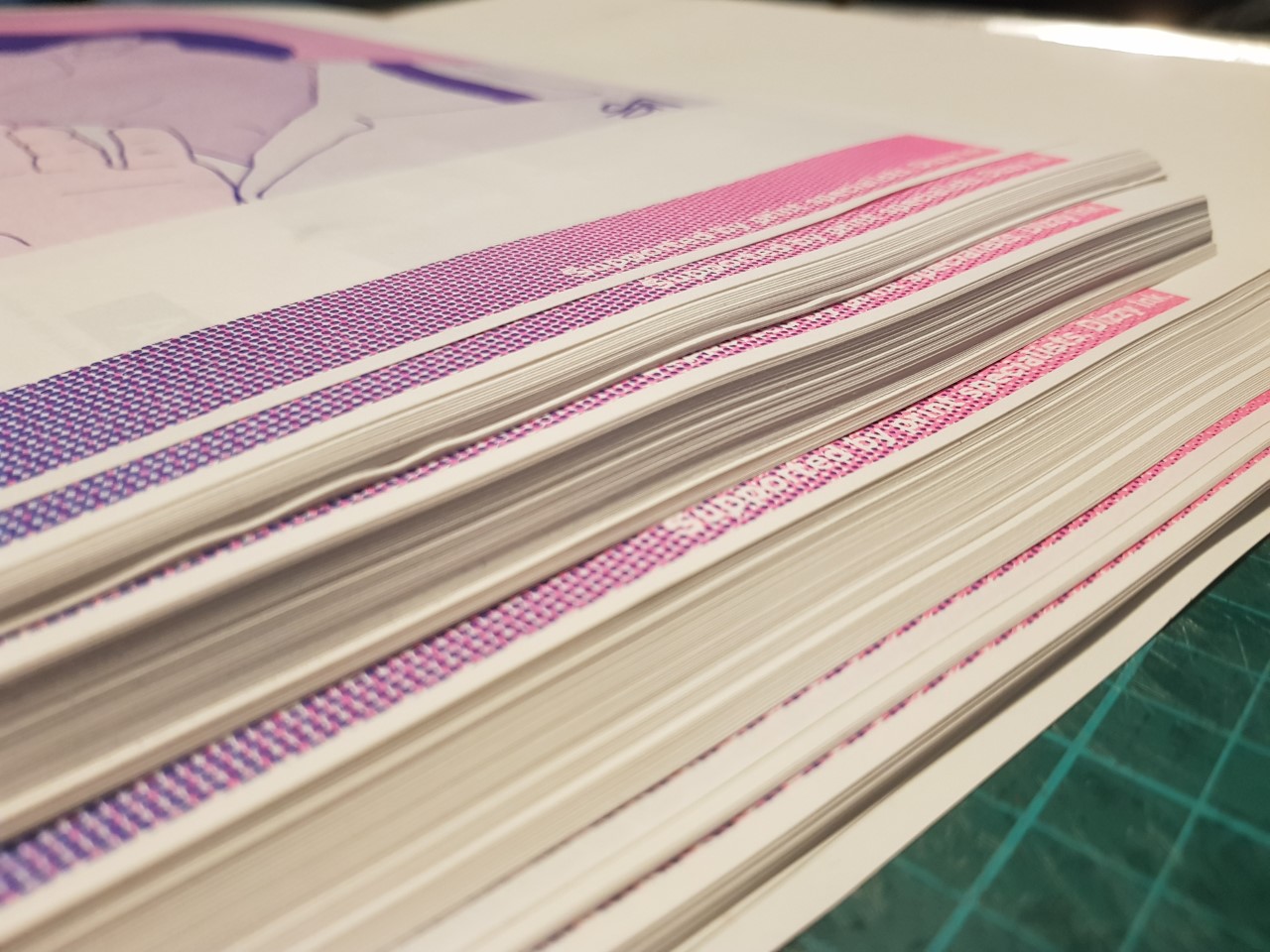Ryan Lee Boultbee is a visual artist and designer based in Nottingham and Charlie Collins is an artist and illustrator based in Derbyshire, currently undertaking a BA (Hons) in Fine Art at the University of Derby. Together they have taken an idea first conceived by Charlie in 2018, to showcase young and emerging artists in the East Midlands using a zine format. The second iteration of No Jobs in the Arts zine has just been published. In this interview we find out more from Ryan and Charlie about the zine and their motivation for producing it.
Find out more on Instagram and on Ryan and Charlie‘s websites.
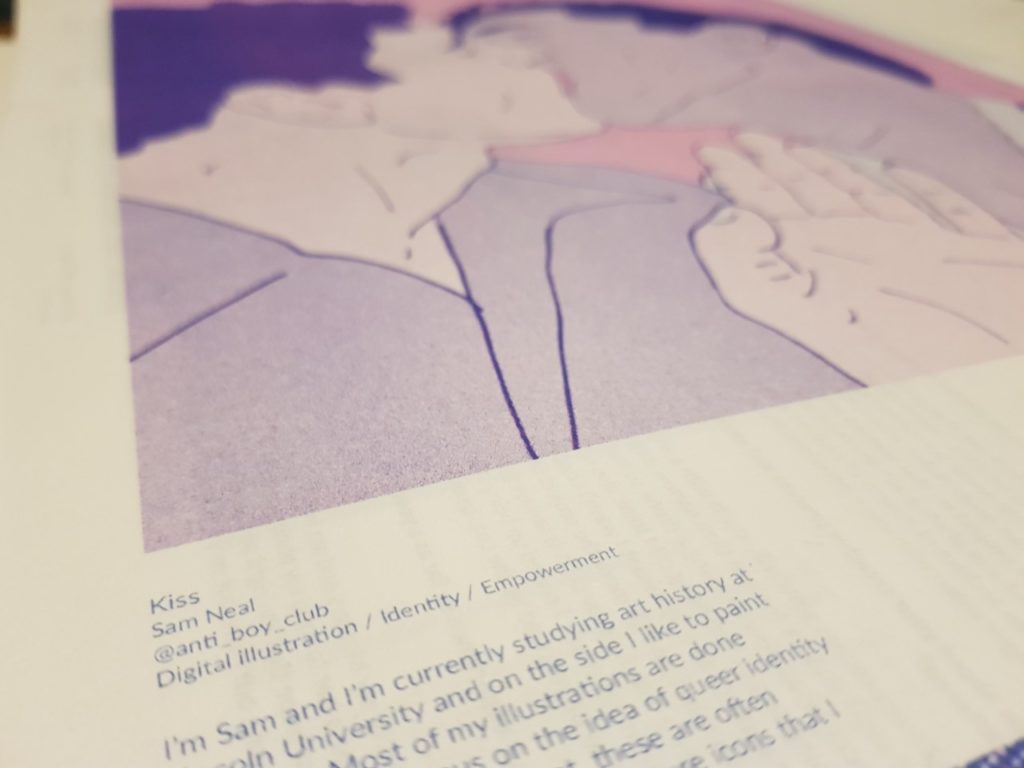
Describe your practice for us?
Ryan Lee Boultbee: I am a visual artist and designer based in Nottingham. Over the past 6 months I have had the opportunity to develop new work in Asia and Europe. My practice is a mixed bag of architectural, experimental, collaborative, and curatorial projects.
Charlie Collins: I’m an artist and illustrator based in Derbyshire. I’ve been a practising artist for about five years, working to commission, curating exhibitions and working on projects to support emerging artists which of course led to the creation of the zine ‘No Jobs in the Arts’.
R: We met earlier this year after I reached out to Charlie to see if we could try to reboot her previous No Jobs in the Arts (NJITA) zine. I thought the idea was fantastic and the name stuck with me. The previous zine had focused on the national young and emerging scene however, we both felt that we could do more if we narrowed our remit to the amazing but underrepresented region we’re both practising in. So, we shifted the focus to the East Midlands – at the start, we just wanted to create a platform to showcase what was out there.
C: I first had the idea in early 2018 to run an evening of artists talks by those who had entered the industry in an unconventional way and for those wanting to enter the industry, I wanted to call the event ‘No Jobs in the Arts’. But after some thinking and planning, I had this crazy idea; what if I could create a new platform using an old format – such as a zine – to showcase these new and emerging artists. I released issue one in July 2018, it was designed to be a portfolio for emerging artists from across the UK but also contained a few interviews from professional artists currently working in the industry.
R: I found a PDF of the zine while doing some preliminary research. After a few emails we’d decided to start work on the next issue in collaboration.
C: When Ryan and I began planning the second issue of NJITA as well as shifting the focus from UK wide to just East Midlands, we also realised we didn’t just want to create another portfolio, that had been done before, we wanted to genuinely support the artists that applied to our open call and so the ethos shifted from wanting to showcase new artists to instead, ‘draw attention to and support emerging and young artists in the East Midlands’.
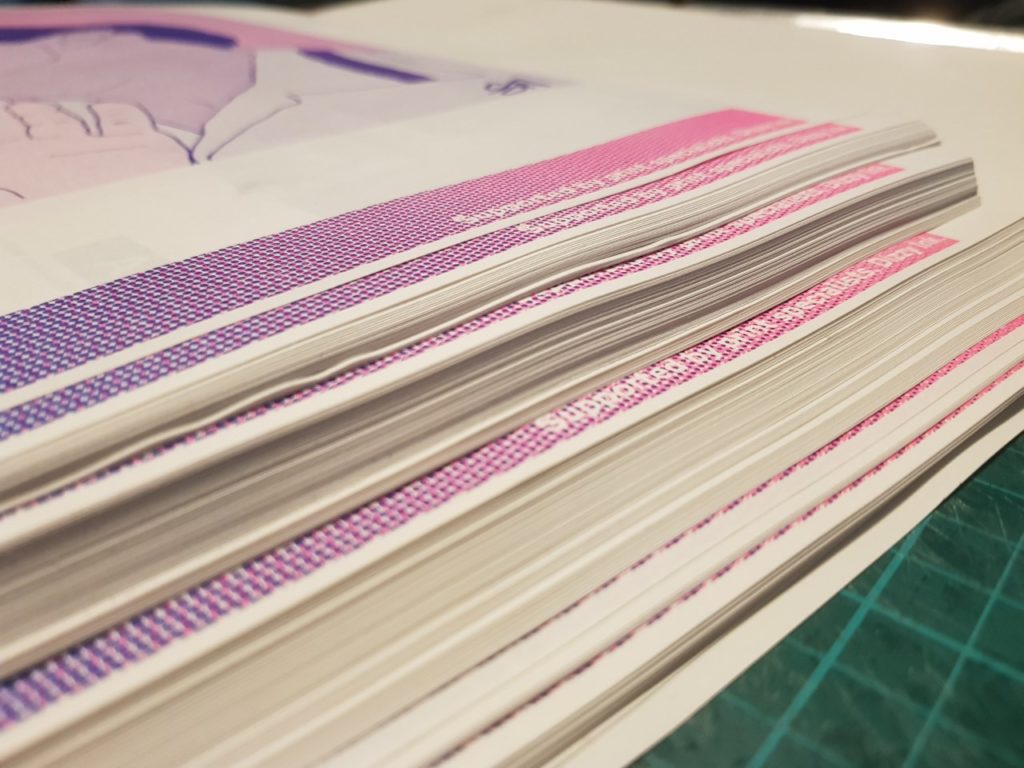
How do you find opportunities in the region and beyond?
R: Your local creative network is an amazing resource. For a long time I really under-appreciated the experience that could be gained on our doorstep. Tapping into this network is so useful; follow the institutions, galleries, collectives, and creatives that interest you. Everyone has so many different platforms that it can all get a bit confusing, but websites, facebook, and instagram are all good starting points. Once you’ve found what you’re ‘into’ I’d recommend getting involved. Attend events, talking to people, and asking questions all feed into my practice. Looking further afield there are many artist opportunity websites that post open calls or host submissions. Each have different scopes, remits, and costs such as: Art Rabbit, Art Quest, Art Jobs, Curator Space, Axis Web, Artists Newsletter. Facebook also hosts several excellent groups and pages sharing opportunities that can be found through a quick search.
C: All of the above are excellent places to go for artistic opportunities, I’ve personally entered open calls found online and been invited to exhibit work just through speaking to other artists and curators at my local galleries. I think it’s also really important to build up your own network. I’ve been a member of multiple artist collectives in the past few years where I’ve had the opportunity to meet some incredible people and the advice I’ve been given and the conversations I’ve had have been invaluable to my practice and career so far. They’ve given me the opportunity to curate exhibitions, run workshops, write zines, visit shows, display my work and more. So I think really, just getting out there and connecting with people is the best way to go. Whether that’s in person or over an email, it could lead to some amazing opportunities!
R: To find relevant opportunities is something that you have to work on over time. I used to spend days and days applying to everything I ever found – even the stuff that was completely irrelevant. It wasn’t all wasted time, my application and proposal writing improved dramatically. On reflection I feel the time could have been better spent by researching and respond to one or two opportunities. That being said, don’t be afraid to step outside of your comfort zone. Some of the better opportunities I’ve applied for have been things I would have never considered applying for. The best opportunities I’ve ever had have come from making the opportunity by sending an inquisitive email, through random encounters, and talking to other creatives about what I’ve been doing.
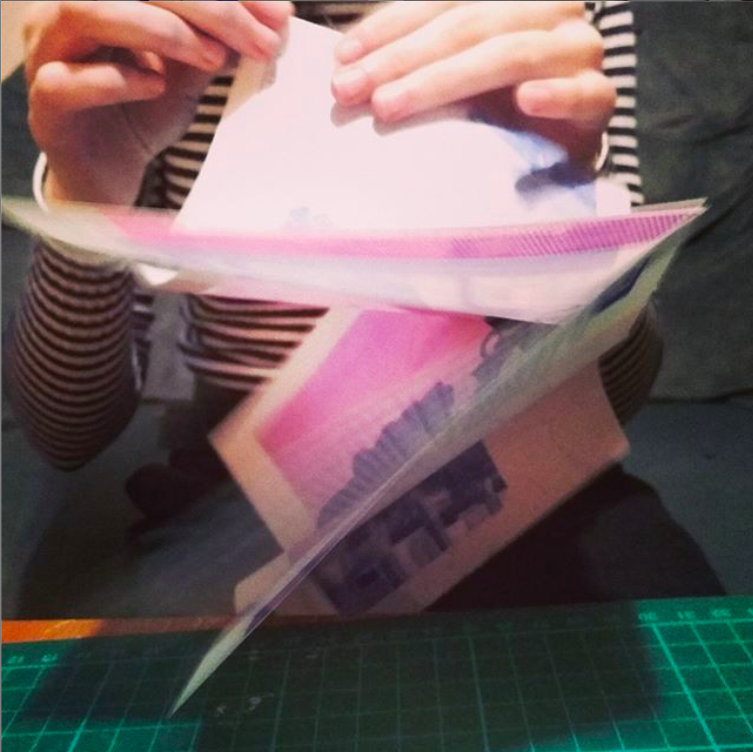
What advice would you give to aspiring young or emerging artists?
C: It seems clichéd but honestly my best advice is to keep going, keep being creative, keep going to galleries, keep trying new mediums and new techniques and keep creating the work you love to create.
R: Creating the work is a part of the process. You also need to find a way to share your work. Find your platform or make your platform. The arts are incredibly broad a diverse and the chances are that everything you’re doing or want to do doesn’t neatly fit in. My advice to young and emerging artists is to be prepared to carve your own space and equally be prepared to be open to the opportunities that come your way.
C: There will be times where you just can’t seem to find the right opportunities or you can’t quite see where your work fits into such a wide industry but the right platform or space or community is out there and as Ryan said, if you don’t think it is then create it.
R: Going to say it again to push the point, make the most of your local region. It’s an excellent environment to play with new ideas, join networks, utilise creative spaces, and form collaborations.
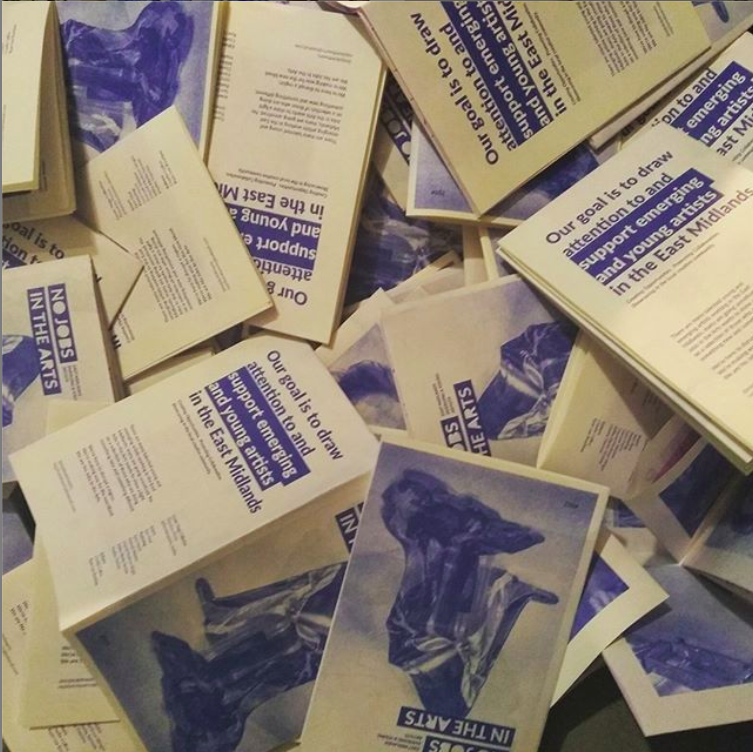
What is your motivation to support and promote people developing careers as an artist?
R: I find helping other people be creative incredibly rewarding. Weirdly?…I still consider myself as an ‘emerging artist’. However, I recognize my mind set and approach has changed dramatically since I started practicing. I’d love to have known what I know today compared to what I knew last year when I first started my practice. But, who wouldn’t? I suppose one of my motivations behind promoting career development in the arts is filling the gaps in learning that I had to guess to resolve.
C: I still consider myself an emerging artist, although I’ve been working in the industry for a while, I actually started exhibiting and selling my work whilst I was still in school, and having just started my degree I’m definitely still learning the ropes! But, having come across many challenges already, I think it’s really important to share my experiences so far in the hopes that it will be of help to other young artists. Back in 2015 I created a young artist collective at my local gallery and curated three exhibitions showcasing our work. I loved doing this and I saw how enthusiastic young artists are, they’re so keen to just get going and put their work out there in whatever way possible and as a young artist myself, I know how difficult it can be to get started. So yeah, I’ve always been incredibly motivated to support people who want to become artists because I was, and still am, in the same boat and I think it’s so important to help, work with and promote each other.
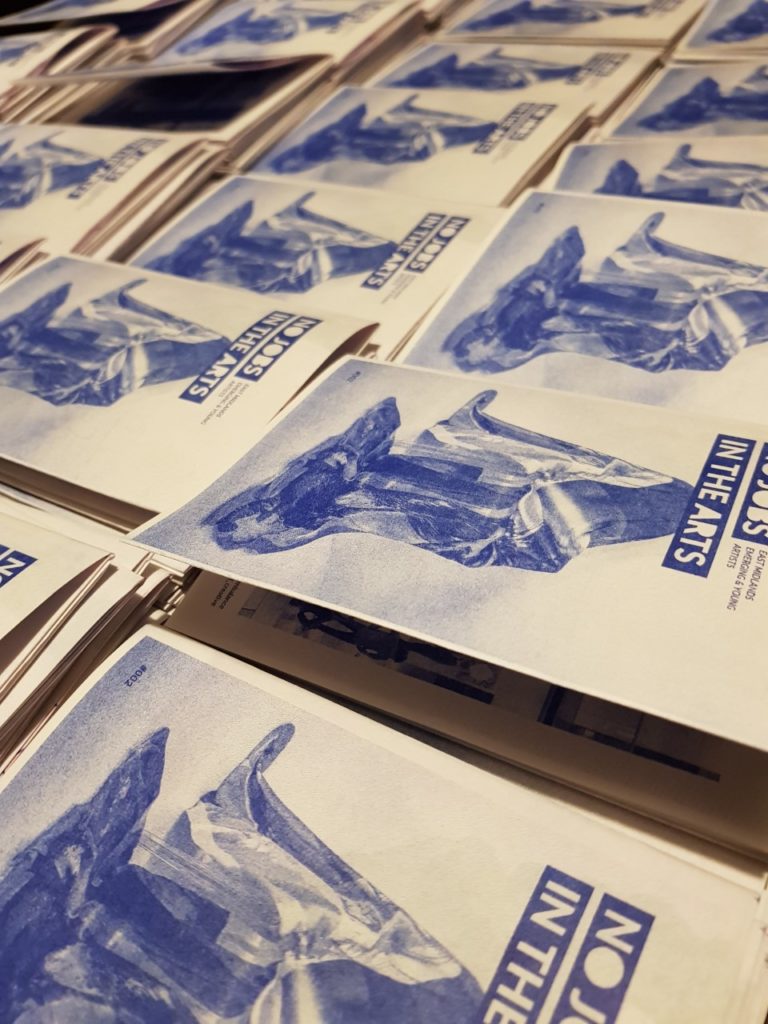
What are the benefits and drawbacks of working as an artist in the Midlands?
C: Working in the creative industry in the Midlands is definitely interesting, at times it can feel like quite an exclusive community that’s hard to enter, and other times it can feel fairly isolating as though there isn’t anything new going on! But in actual fact, when you explore all of the opportunities, the galleries, festivals and all the creativity the Midlands has to offer there is so much happening at the moment. I really think it’s just a case of looking. One thing I definitely think is a benefit to working here is the amount of small businesses, independent galleries and community based arts projects the Midlands currently has and supports. Wherever you’re based in the region, you’re probably not far from a gallery or studio and I think that’s pretty amazing.
R: I completely agree with Charlie. The East Midlands has an amazing art scene that has to be explored. Unfortunately, the region seems to have these inward-looking pockets of activity that are concentrated in certain areas and non-existant in others. One of my aims going forward is to try and increase artist mobility and promote cross-region collaboration through future projects. The region is incredibly supportive and full of collaborative opportunities to explore.
What do you think is most important for supporting young and emerging artists in the Midlands?
R: I’d like to see more work done to bridge the transition between being a fully fledged artist and an emerging artist. There are so many opportunities out there for young and emerging artists but the level and quality of support for career development varies across the board. So for me it’s all about establishing the skills to enable you to develop your hobby into a successful and sustainable career. I’d also like to tack on the need for accessible but affordable space to be spread across the region and a range of funding models (I’m a big advocate for micro funding, e.g. £10-£250).
C: As well as funding, I think access to display space and mentoring from practicing artists are both hugely important. Networking can be really difficult but just having the opportunity to put your work out there, get feedback and make contact with artists already working in the region is important in an emerging artists career and hopefully those connections will help an artist develop and take that next step.
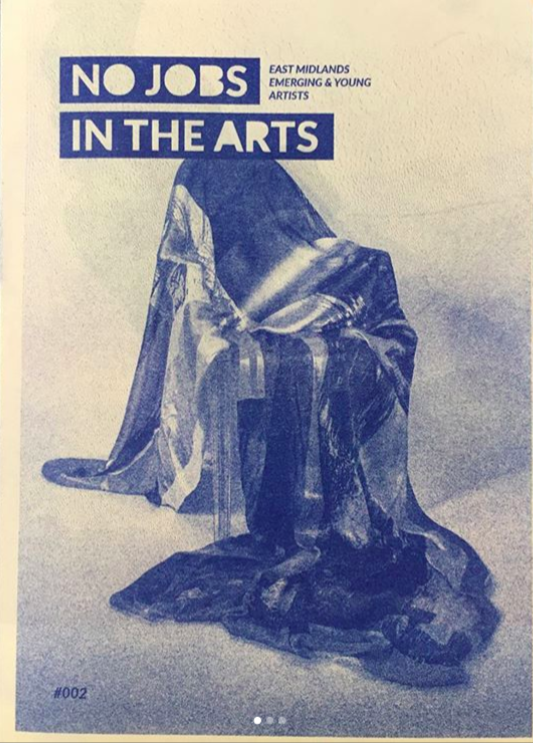
What’s next for NJITA?
C: A lot! I definitely have some plans for the future of NJITA but for the moment the focus is on supporting the artists featured in the second issue and getting the zine and the ethos out there. Collaborating with Ryan to make issue number 2 of NJITA has been amazing. He’s incredibly motivated and full of ideas and it’s been a pleasure working with him. NJITA will of course continue and develop and I’m really looking forward to seeing where it goes, I had no idea it would take this route when I founded it over a year ago, but it’s possible the next big project from NJITA may look a little different.
R: I loved working with Charlie and encouraging her to establish NJITA across the region and explore its potential. Charlie is a fantastic young artist and I look forward to seeing where she takes her practice and NJITA next. I’m still very much committed to supporting artists in the region – I’m looking to explore and experiment with new methods to support young and emerging artists in the Midlands.
Ryan and Charlie were interviewed in December 2019.
All images are by and courtesy of the artists.
Contact the artists at: nojobsinthearts@hotmail.com
